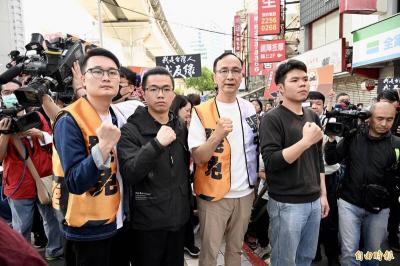About 10 percent of the nation’s emergency room (ER) doctors leave their profession 10 years into their practice, causing a serious manpower shortage, according to a study published at a medical conference yesterday.
ER doctors give up their practice for many reasons, including the flawed payment system under the national health insurance system and having to work in a perennially high-stress environment, said Lee Yi-kung (李宜恭), chief of the Emergency Department at Buddhist Tzu Chi General Hospital in Chiayi’s Dalin Township (大林).
“We found that ER doctors quit their practice more often than hospital-based doctors specializing in other fields,” Lee said at this year’s Annual Conference of the Taiwan Society of Emergency Medicine.
Lee and his team surveyed 1,721 registered ER doctors nationwide and followed their careers from 1997 to 2010. They found that during the 13 years, 10 percent of the doctors have either retired or changed their specialty.
The turnover was higher than that of doctors with other hospital-based specialties, like radiology, pathology and anesthesiology.
“The study results yield several implications,” Lee said, urging health authorities to pay attention to the brain drain situation in emergency rooms.
With 1,100 ER doctors taking care of 6 million patients per year, Lee said that an increasing workload resulting from the brain drain could drive even more doctors away.
The present ER doctor-patient ratio is already short of the 1:5,000 standard set by the Department of Health, he added.
“Being an ER doctor is a profession that requires accumulation of experience,” he said.
Unfortunately, the national health insurance system, which covers 99 percent of the population, does not recognize that, Lee added. ER doctors, for example, are only paid NT$400 (US$13) for conducting an intubation, a process that is done under high stress and requires intense concentration, he said.
The two-day conference, themed Refining Emergency Medicine Specialty through Excelling Medical Education, attracted physicians from China, Hong Kong and Canada.

The Ministry of Economic Affairs has fined Taobao NT$1.2 million (US$36,900) for advertisements that exceeded its approved business scope and ordered the Chinese e-commerce platform to make corrections in the first half of this year or its license would be revoked. Lawmakers have called for stricter supervision of Chinese e-commerce platforms and more stringent measures to prevent China from laundering its goods through Taiwan as US President Donald Trump’s administration cracks down on origin laundering. The legislature’s Finance Committee yesterday met to discuss policies to prevent China from dumping goods in Taiwan, inviting government agencies to report on the matter. Democratic Progressive Party

Taiwan and its Pacific ally Tuvalu on Tuesday signed two accords aimed at facilitating bilateral cooperation on labor affairs, according to Taiwan’s Ministry of Foreign Affairs (MOFA). The governments inked two agreements in Taipei, witnessed by Foreign Minister Lin Chia-lung (林佳龍) and visiting Deputy Tuvaluan Prime Minister Panapasi Nelesone, MOFA said in a news release. According to MOFA, the agreements will facilitate cooperation on labor issues and allow the two sides to mutually recognize seafarers’ certificates and related training. Taiwan would also continue to collaborate with Tuvalu across various fields to promote economic prosperity as well as the well-being of their

The Taipei District Prosecutors’ Office has continued its investigation into allegations of forged signatures in recall efforts today by searching the Chinese Nationalist Party’s (KMT) city chapter and questioning several personnel including the chapter director, according to media reports. Among those questioned and detained were KMT Taipei chapter director Huang Lu Chin-ju (黃呂錦茹), chapter secretary-general Chu Wen-ching (初文卿), chapter secretary Yao Fu-wen (姚富文) and first district committee executive director Tseng Fan-chuan (曾繁川). Prosecutors said they would not confirm reports about who had been summoned. The investigation centers on allegations that the ongoing recall campaigns targeting Democratic Progressive Party legislators Rosalia Wu (吳思瑤)

Several Chinese Nationalist Party (KMT) officials including Chairman Eric Chu (朱立倫) are to be summoned for questioning and then transferred to prosecutors for holding an illegal assembly in Taipei last night, the Taipei Police said today. Chu and two others hosted an illegal assembly and are to be requested to explain their actions, the Taipei City Police Department's Zhongzheng (中正) First Precinct said, referring to a protest held after Huang Lu Chin-ju (黃呂錦茹), KMT Taipei's chapter director, and several other KMT staffers were questioned for alleged signature forgery in recall petitions against Democratic Progressive Party (DPP) legislators. Taipei prosecutors had filed